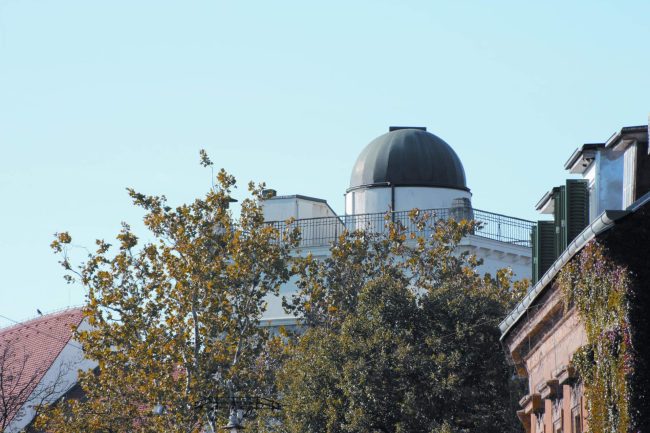About us
The Observatory at Popov Tower in Zagreb’s Upper Town (Opatička 22) was established at the initiative of the Croatian Natural History Society (HPD). The City Government provided the premises in Popov Tower for its needs, approved funds for architectural adaptation, the installation of an astronomical dome, and a telescope. It was ceremoniously opened on December 5, 1903. Oton Kučera, the first director of the Observatory, expressed its fundamental activities with the following words:
“Our astronomical observatory has a dual purpose: 1. To contribute, according to its instrumental means and workforce, to the advancement of science itself, and 2. To particularly spread the results of this most sublime, beautiful, and perfect natural science among the Croatian intelligentsia and youth, thereby becoming a center for all those interested in this science within the Croatian nation.”
The reputation of the Observatory was enhanced by the Heidelberg astronomer August Kopff, who named the newly discovered asteroid No. 589 (discovered in 1906) “Croatia” in honor of the Observatory’s opening.
In addition to scientific work, the Observatory has been popularizing science from its very beginning. A fruitful period of popularization began in the mid-20th century when the Observatory became known worldwide through its Esperanto publications. Higher quality work was made possible in the 1960s with the acquisition of a new telescope. A significant cultural contribution of the Observatory and the HPD was the procurement of a planetarium (in 1963), which was donated to the Technical Museum, where it remains operational to this day.
In the mid-1980s, the complex of buildings housing the Observatory underwent intensive renovation. In 1992, a new dome was installed, the space was modernly equipped, and its activities were modernized. Even today, the Observatory gathers numerous astronomy and natural science enthusiasts and unites the activities of its members, including astronomical associations from the City of Zagreb. Through traditional programs for the public (lectures, sky observations, and more), the Observatory has affirmed its cultural contribution to the life of the city of Zagreb.
Today, the Observatory is involved in all major projects and programs of astronomical education, and scientific work in the field of solar physics is conducted in collaboration with the Hvar Observatory.



